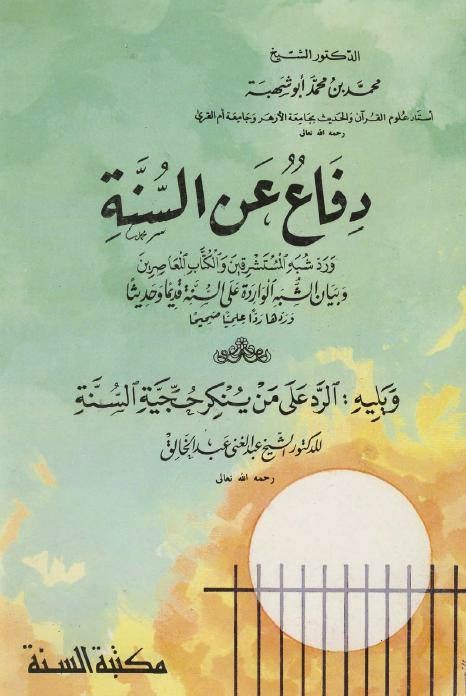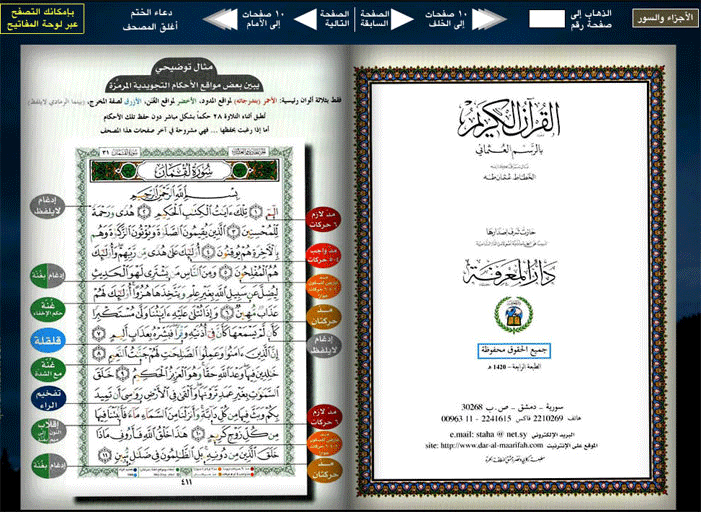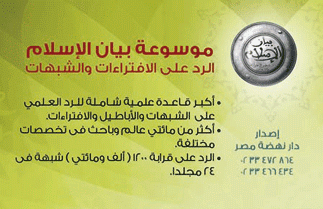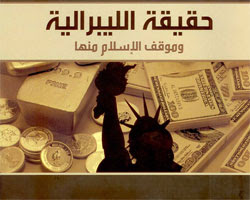
الخميس، 19 يناير 2012
البريطانيون من بين أكثر الشعوب تحفظًا تجاه الهجرة والإسلام في أوروبا

إنَّ الإيمانَ بأنَّ المسلمين والإسلام يُهدِّدان المجتمعاتِ الأوروبيةَ كان أمرًا مركزيًّا لفَهم ما دفَع "أندريس بيرنج بريفيك" لقتْل 77 نرويجيًّا الشهر الماضي، لقد كانتْ أعمال "بريفيك" بوضوحٍ منقطعةَ النظير، إلا أنَّ مواقفه تجاهَ المسلمين يُشاركه إيَّاها الكثيرُ بيْن صفوفِ اليمين المتطرف!
فإنَّ مناقشاته حولَ كوْن المسلمين يُهدِّدون الثقافاتِ والقيمَ الغربية، وأنهم يغزون أوروبا بواسطةِ ارتفاع معدَّلات المواليد المتفاوتة، وبالتزامهم القِيَم الإسلاميَّة، والتي لا تتناسب مع المجتمعات الغربيَّة - تُعدُّ منتشرةً نسبيًّا على صعيدِ اليمين المتطرف.
وتوضيحًا للموقِفِ، فليس كلُّ مناصر لليمين المتطرِّف متبنيًا للعُنف، إلا أنَّه مِن خلال قراراتهم عبرَ صناديق الاقتراع، فإنَّ الغالبية تَتبنَّى مناقشاتٍ تُظهر أن "بريفيك" استدعَى ما يُبرِّر العنف.
ولكن بعيدًا عن اليمينِ المتطرف فما مقدارُ انتشار العداوة تُجاه المهاجِرين والمسلمين والتنوُّعيَّة المتنامية؟
في وقتٍ مبكِّر هذا العام انتُقدتِ المسلمة الوحيدة بمجلسِ الوزراء - سيدة وارسي - لإشارتِها إلى أنَّ الأحاسيسَ المناهضة للمسلمين أصبحتْ مقبولةً اجتماعيًّا في بريطانيا الحديثة وأنَّها اجتازتِ الاختبارات.
وإلى فترةٍ قريبة - وكالعادةِ - لم يكُن هناك بالفِعل كثيرٌ مِن البراهين المعبِّرة، والتي يُعتمَد عليها حولَ الرأي العام تُجاه المجتمعاتِ الإسلاميَّة المقيَّمة.
لقد أشارتِ استطلاعاتُ الرأي إلى أنَّ هناك مخزونًا كبيرًا مِن الانزعاج العام في بريطانيا؛ بسببِ الدَّور الحاضر والمُدرَك للمسلمين، فأحدُ هذه الاستطلاعات أخبَرَنا عام 2002 أنَّ أكثر مِن نصف السكَّان يعتقدون أنَّ قِيمهم لديها القليل أو ليس لديها اعتبار بالنِّسبة للمسلمين.
وفي العام ذاتِه والذي شهِد تفجيراتِ السابع مِن يوليو، أشار استفتاءٌ آخَرُ إلى أنَّ الرُّبع يعتقدون أنَّه ليس ممكنًا للقيم الإسلاميَّة والغربيَّة أن يتعايشَا في سلام، وبعدَ أربع سنوات وفي العام الذي أدْخَل الناخبون فيه الحزبَ القومي البريطاني البرلمانَ الأوروبي، أعربَ 44% منَّا - البريطانيين - موافقتَهم على أن النماذج الإسلامية حتَّى المميِّعة تُشكِّل خطرًا على الحضارةِ الغربيَّة.
إنَّ الاستفتاءاتِ تُقدِّم لقطاتٍ نافعةً، ولكنَّها قد تصير تساؤلاتٍ مضلِلةً تجاه قضايا حسَّاسة؛ ولهذا السبب فإنَّ هناك دِراستين حديثتَين عن الرأي العام تُجاه المسلمين والهِجرة أكثرُ عمومًا، ومفيدتينِ على وجهِ الخصوص؛ فالأُولى أتتْ مِن خلال مؤسَّسة "فريدريك إيبرت ستيفتنج" الفِكريَّة، وحدَّدتْ مشروعًا بجامعة بليفيلد يشمَل ثمانيةَ دول؛ حيث تستهدِف إثارةَ مناقشة حولَ الإجحاف في أوروبا، وأمَّا الثانية فتمثِّل الطبعة الأخيرة مِن دراسة "النَّزعات عبر الأطلسي"، والتي تَقيس الرأيَ العام عبرَ ثلاثَ عشرةَ دولة.
فماذا تقولانِ لنا؟
رغمًا عن أنَّهما مليئتانِ بالبيانات إلاَّ أنَّ هناك ستَّ رسائلَ بارزة:
الأولى: أنَّه بالرغم مِن بداية الأزمة الاقتصاديَّة وازدياد البطالة، إلا أنَّ البريطانيِّين لا يزالون قَلِقين بعُمق بشأنِ الهجرة بصورة أكبرَ مِن جيراننا الأوربيِّين.
ففي الواقع أوصل 37% منَّا الهجرةَ إلى مرتبة أحدِ أكثر القضايا التي تواجِه الدولة أهميَّةً مقارنةً بنِسبة 21% مِن الإيطاليِّين، و16% من الفرنسيِّين، و10% من الهولنديِّين.
إنَّ اهتمامنا بهذا الموضوعِ تُوضع أسفله عدة خطوط؛ بسبب أنَّ ثلثينا يناقشون بصفةٍ منتظِمة قضية الهِجرة مع أصدقائهم، وستَّة مِن كلِّ عشرة يتابعون الأخبارَ بعناية إذا ما تناولتْ هذه القضايا.
قد يقول السياسيُّون: إنَّ هذا حسن بما أنَّ قضية الهجرة قلَّما تحدد نتائج الانتخابات، إلاَّ أنَّ المشاركين لديهم رأي مختلف؛ حيث إنَّ البريطانيِّين أكثر مِن أيِّ جِنسية أخرى بنسبة 53% في الانتخابات القادِمة سيصوِّتون لصالح حزب يُريد تقليلَ الهجرة.
وكذلك فقدْ كُنَّا - البريطانيِّين - أكثرَ ميلاً - مقارنةً بالعام 2008 - للقول بأنَّ السياساتِ حولَ الهِجرة ستؤثَّر على تصويتنا (63% مقابل 61).
الثانية: العداوة تُجاهَ الهِجرة بقيت مرتفعةً إلا أنَّ دعم الأشكال التقليديَّة والفظَّة مِن العنصرية لا يَزال في تراجع، وبصورةٍ مقلقة فإنَّ مستويات العداوة تُجاه الهِجرة في بريطانيا تفوق تلك المستوياتِ التي تُرى عبرَ القناة[1].
فالبريطانيُّون على سبيل المثال بنسبة 62 % أكثر ميلاً مِن الألمان والفرنسيِّين والهولنديِّين والبرتغاليِّين والبولنديِّين والمَجريِّين - إلى القول بأنَّ هناك كثيرًا مِن المهاجرين، والأكثر شعورًا بأنهم غرباءُ في بلادِهم بنسبة 46%، ولكن المجريِّين فقط بنسبة 77% أكثر من البريطانيِّين بنسبة 60% في أنَّهم يقولون: إنَّ المهاجرين يُعدُّون إجهادًا لنظام الخِدمات الاجتماعيَّة.
والبريطانيُّون بنسبة 59% كانوا الأكثرَ مِن غالبية الألمان والفرنسيِّين والهولنديِّين والإيطاليِّين في القول بأنَّ ثقافتنا يجب أن تُحمَى مِن تأثير الثقافات الأخرى.
وبصورةٍ أشملَ فالبريطانيُّون مقارنةً بالعام 2008 أكثر اعتبارًا لكونِ الهجرة مشكلةً أكثر مِن كونها فرصةً، فالواقِع أنَّنا الأكثر مِن بين الأوربيِّين الذين يقولون: إنها مشكلة بنسبة 65% مقابل 30% يعتقدون أنَّها فرصة.
وفي الوقتِ ذاته بالرغمِ مِن بقاءِ مستويات عداءِ رهاب الأجانب عاليةً؛ أُسوةً بغالبية مواطني أوروبا الغربيَّة، إلا أن البريطانيِّين بوضوحٍ يَنأَون بأنفسهم بعيدًا عن أكثرِ أشكال العنصريَّة إزعاجًا، حيث يرى الثُّلُث فقط أنَّ هناك "تسلسلاً طبيعيًّا بين السُّود والبيض"، وأنَّ فقط العُشر يعارضون الزواجَ مختلط الأعراق.
الثالثة: بعيدًا عن الهِجرة وتأييد مزاعِم وارسي، فهناك بُرهانٌ واضح على العَداوة الخطيرة تُجاه المسلمين، وعبْر أوروبا بصورةٍ أكثرَ عموميةً، فإنَّ نتيجة واحِدة مِن هذه الدِّراسات على المستوى العام تُشير إلى أنَّ المواطنين يَبدُو أنهم "متحدُّون بقوة" في رفْضهم للمسلمين والإسلام.
وبالرغمِ مِن قلَّة الكثافة السكانيَّة المسلِمة، وعدم شهود صعود رُموز يمينيَّة متطرفة ناجِحة، ممَّن يشوِّهون صورة المسلمين تحديدًا، فإنَّ 44 % من البريطانيِّين مقارنة بنسبة 36% من الفرنسيِّين، و41% من الهولنديِّين أكثر ميلاً لاعتقاد أنَّ هناك الكثيرَ من المسلمين بالبلاد.
علاوةً على ذلك، فإنَّ نِصف السكان بالضبط مستعدُّون لتقبل فِكرة أنَّ المسلمين "ذَوو مطالب كثيرة"، وبالرُّغمِ من غيابِ نموذج خيرت فيلدرز مِن مُعادي الأجانب، فالبريطانيُّون أكثر مِن الهولنديِّين ميلاً إلى اعتقادِ أنَّ الإسلام دِينٌ غير متسامح، وفي الواقِع فإنَّ نِصفَنا يعتقد ذلك.
الرابعة: وراء هذه العداوة بُرهانٌ على القَلَق العميق حولَ كيفية انصهارِ المسلمين في المجتمع، وهو أمْرٌ غير مُثير للدهشة في ضوءِ مزاعم قريبة أنَّ بريطانيا "تسير بلا تفكير تُجاه العُزلة"، أو أنَّ مواطنيها يباشرون "حياة متوازية".
ولكن بوضع هذه الدَّعاوى في جانبٍ واحد، فإنَّنا فعليًّا لم نعرفْ مطلقًا كيف يعتقد الناسُ أنَّ المسلمين يندمجون بالمجتمع الأكبر، ولكنَّ الأنباءَ تشير إلى أنَّ الناس يبدون أكثرَ إيجابيةً تُجاه شباب المسلمين والمهاجرين، فقليل يعتقد أنَّ أطفال المسلمين بنسبة 30% ، وأطفال المهاجرين بنِسبة 24% يَندمجون بصورةٍ ضعيفة مع المجتمع البريطاني.
وعلى كلِّ حال فإنَّ التغييرات الجيليَّة تأخذ وقتًا طويلاً، فاليوم تُشير النتائجُ إلى أنَّ أكثر مِن نصف السكَّان بنِسبة 53% يَعتقدون أنَّ المسلمين يندمجون بضَعْف في نِسبة مماثلة لتلك المتعلِّقة بالمهاجرين.
الخامسة: إنَّ هذه النَّزعات تبدو أنَّها مدفوعةٌ بصورةٍ ضعيفة مِن قِبل أوضاعِ التنافس الاقتصادي مقارنةً بتنافس المسلمين الثقافي، فغالبًا ما يحاول السياسيُّون تهدئةَ العداوة تُجاه الأجانب مِن خلال الوضع الاقتصادي وزِيادة الرفاهية، إلا أنَّ الحقيقةَ تشير إلى أنَّ نتائج هذه النزاعاتِ ستظهر على المدَى البعيد.
بالإضافةِ لذلك، فإنَّ الدافع الأقوى لهذه العداوةِ هو الإحساس أنَّ المسلمين يُشكِّلون خطرًا على الهُويَّة القوميَّة وقِيم وأنماط الحياة، ولندرك أنَّ أقلَّ من الخُمُسين يعتقد أنَّ "الثقافة الإسلامية" تتناسَب مع المجتمع البريطاني وأكثر مِن 80% يَعتقدون أنَّ موقف المسلمين مِن المرأة يَتناقض مع القِيَم البريطانيَّة.
إنَّ البريطانيِّين أكثرُ مِن الألمان والفرنسيِّين والهولنديِّين والبولنديِّين والمجريِّين ميلاً إلى التفكيرِ بهذه الطريقة، إلا أنَّ المجريِّين فقط أكثرُ ميلاً إلى القول بأنَّ المسلمين يرَوْن الإرهابيِّين[2] كأبطال، بينما يرَى ذلك 38 % من البريطانيِّين، وكذلك فإنَّ المجريِّين فقط أكثرُ منَّا في تبني رأي أنَّ المسلمين يرَوْن الإرهاب مبررًا، مقابلَ 26% يُفكِّرون على هذا النحو من البريطانيِّين.
إنَّ الملاحظة الأخيرة هي أنَّه بالإضافة إلى هذه الاهتمامات الخانقة العميقة النسبيَّة توجَد مستوياتٌ عويصة مِن عدم الرِّضا عن طريقةِ استجابة غالبية السياسيِّين.
والحقيقة البسيطة هي أنَّه بالرغم مِن جهوده؛ فإنَّ حزب العمَّال لم يظهرْ بمصداقية تُجاهَ تلك القضايا، بل فشِل في إقناع غالبية الناخبين بأنَّه واضح وأمين معهم بشأنِ مستوى الهجرة في بريطانيا.
إنَّ عدمَ الرضا الشديد يبقَى مرئيًّا ومحصورًا على بريطانيا، فإنَّ 54% من الهولنديِّين، و58% من الفرنسيِّين غير راضين عن تعامل ممثِّليهم مع قضيةِ الهجرة، وأمَّا في بريطانيا فإنَّ النسبة 70%.
وهذا يعني أنَّه توافقًا مع الإيطاليِّين، فإنَّنا الأكثرُ استياءً في أوروبا، وليس هذا الاستياء مقصورًا على سياسةِ الهجرة؛ فالبريطانيُّون أيضًا أكثرُ مِن الفرنسيِّين والألمان والإسبان قولاً بأنَّ حكومتهم تقوم بعملٍ سيِّئ تُجاهَ قضية الاندماج؛ حيث يعتقد الثُّلُثان نحو هذا.
فالبريطانيون اليومَ مُتشائِمون تجاهَ وضعهم الاقتصادي، وغير راضين عن غالبيةِ الصفوة، إلا أنَّهم أيضًا متفائِلون بشأنِ كيف أنَّ العلاقات مع المهاجرين سوف تتطوَّر في المستقبل رغمًا عن توقُّع قرابةِ النِّصف أنها قد تُصبح أسوأ.
فوسط عصْرٍ مِن القسوة كان يرَى التعدديةَ الثقافيَّة فشلاً، فإنَّ التحدِّي الذي يواجِه الحكومةَ هو تطوير هيكل سياسي يُمكنه التعامُل مع الانزعاج الأساسي وإحساس الاستياء العَميق بين صفوفِ المواطنين العاديِّين بشأنِ الهجرة والمسلمين وتصاعُد التنوعية.
فهذه النِّقاط الست يُمكن أن تكونَ نقاطَ انطلاق نافعة.
The belief that Muslims and Islam threaten European societies was central to understanding what pushed Anders Behring Breivik to murder 77 Norwegians last month.
Breivik’s actions were clearly unique, but his attitudes toward Muslims are shared by many within the far right. His arguments that Muslims threaten Western cultures and values, are invading Europe through stealth and disproportionately high birth rates, and subscribe to Islamic values that are incompatible with Western societies are relatively widespread across the far right landscape.
Clearly, not every far right supporter endorses violence. But through their decisions at the ballot box most are endorsing arguments that Breivik cited as justification for violence.
But beyond the far right, just how widespread is public hostility toward immigration, Muslims and rising diversity? Earlier this year, the only Muslim in cabinet – Sayeeda Warsi – was criticized for suggesting that anti-Muslim sentiment is becoming socially acceptable in modern Britain, and has passed the “dinner-table test”.
Until recently, however, there actually hasn’t been much in the way of reliable and representative evidence on public opinion toward settled Muslim communities.
Opinion polls have long hinted at there being a large reservoir of public anxiety in Britain over the presence and perceived role of Muslims. One such poll in 2002 told us that over half of the population thought their own values had little or nothing in common with those of Muslims.
In the same year as 7/7, another suggested that one quarter thought it was not possible for Islamic and Western values to peacefully coexist. Four years later, in the same year that voters sent BNP candidates into the European Parliament, 44% of us expressed agreement with the suggestion that even in its milder forms Islam poses a danger to Western civilization.
Polls provide useful snapshots but can also ask misleading questions on sensitive issues. For this reason, two recent studies of public opinion toward Muslims and immigration more generally are particularly interesting.
The first comes via the think-tank Freidrich-Ebert-Stiftung, and draws on a project at the University of Bielefeld that spanned eight countries and aims to stimulate discussion about prejudice in Europe.
The second is the latest edition to the Transatlantic Trends study, which measures public opinion across thirteen different countries. So what do they tell us? Well, although both are packed with good data there are six messages that stand out.
First, despite the onset of the financial crisis and rising unemployment the British remain deeply concerned about immigration, and more so than our European neighbours.
In fact, 37% of us ranked immigration as one of the two most important issues facing the country, compared to 21% of the Italians, 16% of the French and 10% of the Dutch.
Our ongoing concern about this issue is underscored by the findings that two-thirds of us regular discuss immigration with friends, and six out of every ten follow the news closely when it comes to these issues.
Politicians may say this is fine, as immigration seldom determines election outcomes. Yet respondents hold a different view: the Brits were more likely than any other nationality (53%) to say that at the next election they will vote for a party that wants to reduce immigration.
Last year, we were also more likely than in 2008 to say that policies on immigration will influence our vote (63% versus 61%).
Second, hostility to immigration remains high but support for traditional and cruder forms of racism is continuing to decline. Worryingly, levels of public hostility to immigration in Britain surpass those seen across the Channel.
The Brits, for example, are more likely than the Germans, French, Dutch, Portuguese, Polish and Hungarians to say there are too many immigrants (62%) and to feel like a stranger in their own country (46%). Also, only the Hungarians (77%) were more likely than the British (60%) to say immigrants are a strain on the welfare system.
The British were also more likely than most – the Germans, French, Dutch and Italians – to say our culture should be protected from the influence of other cultures (59%). More generally, the British are also now more likely than they were in 2008 to consider immigration a problem rather than opportunity.
In fact, we are the most likely in Europe to say it is a problem (65% think it is a problem, versus 30% who think it is an opportunity). At the same time, however, while levels of xenophobic hostility remain high, like most citizens in West Europe the British also clearly distance themselves from more strident forms of racism: only one third think there is a “natural hierarchy between black and white people”, and only one tenth oppose mixed race marriage.
Third, beyond immigration and supportive of Warsi’s claims, there is clear evidence of significant hostility toward Muslims. Across Europe more generally, the conclusion of one of these studies was that, on the whole, citizens appear “largely united” in their rejection of Muslims and Islam.
Yet despite having a smaller Muslim population, and also not witnessing the rise of successful far right figures who specifically vilify Muslims, the British (44%) are more likely than the French (36%) and Dutch (41%) to think there are too many Muslims in their country.
Moreover, exactly half of the population are potentially receptive to the argument that Muslims are “too demanding”. And even in the absence of a Geert Wilders-style xenophobe, the British are still more likely than the Dutch to think Islam is a religion of intolerance. In fact, almost half of us think so.
Fourth, beyond this hostility is evidence of deep anxiety about how well Muslims are integrating in society. This is not surprising given recent claims that Britain is “sleepwalking into segregation”, or its citizens are leading “parallel lives”.
But putting these claims to one side, we have actually never really known how well people think Muslims are integrating into wider society. The good news is that people seem more positive toward Muslim and immigrant youths: only minorities think the children of Muslims (30%) and children of immigrants (24%) are integrating poorly into British society.
However, generational change takes a long time. Today, findings indicate that over half of the population think Muslims (53%) are integrating poorly, which is around the same figure as for immigrants.
Fifth, these trends appear to be driven less by anxiety over economic competition than the cultural compatibility of Muslims. Politicians often attempt to appease xenophobia by making the economic case for immigration and rising prosperity. The evidence, however, would suggest that these arguments will only take the response so far.
Rather, a more powerful driver of this hostility is the feeling that Muslims threaten national identity, values and ways of life. Consider this: less than two fifths think “Muslim culture” fits well into British society; and over 80% think Muslims’ attitudes toward women contradicts British values.
The Brits are also more likely than the Germans, French, Dutch, Polish and Hungarians to think this way. Furthermore, only the Hungarians are more likely to say Muslims view terrorists as heroes (38% of the British think they do). And again, only the Hungarians are more likely than us to hold the view that Muslims find terrorism justifiable (26% of the British think this way).
The final observation is that alongside these deep and relatively entrenched concerns are profound levels of dissatisfaction about the way in which mainstream politicians are responding. The simple reality is that, despite its efforts, Labour never appeared credible on these issues, and even failed to convince most voters that it was being open and honest with them about the scale of immigration into Britain.
This extreme dissatisfaction remains visible and is by no means restricted to Britain: 54% of the Dutch and 58% of the French were similarly unhappy with the response of their representatives to immigration. In Britain, however, the figure was 70%.
This means that, along with the Italians, we are the most dissatisfied in Europe. And nor is this dissatisfaction restricted to immigration policy. The British were also more likely than the French, Germans and Spanish to say their government is doing a bad job on integration (almost two thirds think so).
Today, the British are pessimistic about their economic prospects and dissatisfied with their mainstream elites. But they are also pessimistic about how relations with immigrants will develop in the future, with almost half expecting them to worsen.
Amid an age of austerity that has seen multiculturalism branded a failure, the challenge facing government is to develop a policy framework that can begin addressing this underlying anxiety and profound sense of dissatisfaction among ordinary citizens over immigration, Muslims and rising diversity. These six key points may well be a useful starting point.
[1] إشارة إلى بحر المانش الفاصل بين بريطانيا وفرنسا، ولعل الكاتب يقصد الممارسات العنصرية تجاه المسلمين والمهاجرين بفرنسا.
[2] يُطلق اسم "الإرهاب" و"الإرهابي" مِن قِبل الغرب إذا ما تَعلَّق بالمسلمين على الجهاد المسلَّح وعناصر الحركات الجهاديَّة ضدَّ احتلال أراضي المسلمين.
الاشتراك في:
تعليقات الرسالة (Atom)




































































ليست هناك تعليقات:
إرسال تعليق